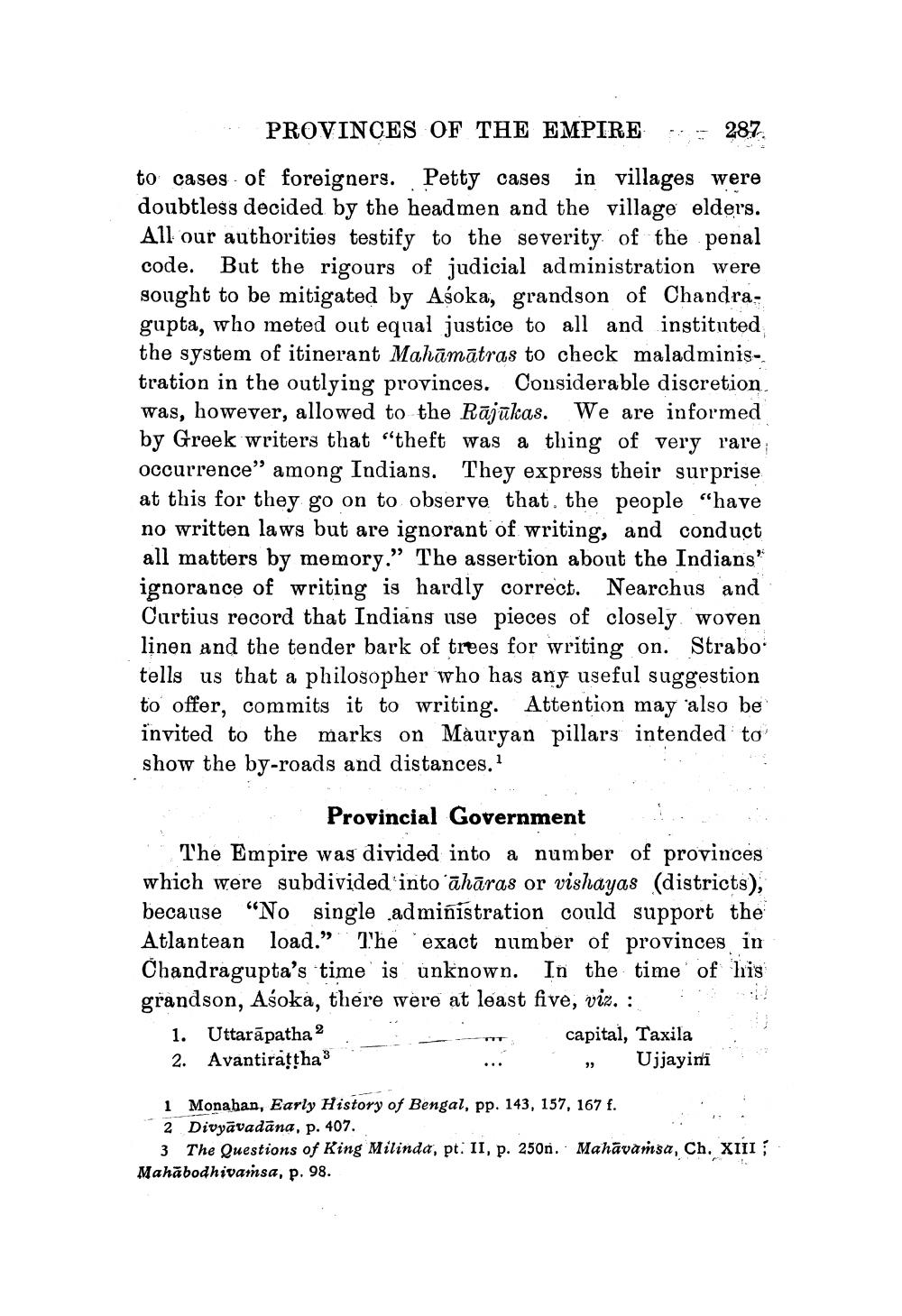________________
PROVINCES OF THE EMPIRE = 287. to cases of foreigners. Petty cases in villages were doubtless decided by the headmen and the village elders. All our authorities testify to the severity of the penal code. But the rigours of judicial administration were sought to be mitigated by Asoka, grandson of Chandragupta, who meted out equal justice to all and instituted the system of itinerant Mahāmātras to check maladministration in the outlying provinces. Considerable discretion. was, however, allowed to the Rājukas. We are informed by Greek writers that "theft was a thing of very rare occurrence” among Indians. They express their surprise at this for they go on to observe that the people “have no written laws but are ignorant of writing, and conduct all matters by memory." The assertion about the Indians" ignorance of writing is hardly correct. Nearchus and Curtius record that Indians use pieces of closely woven linen and the tender bark of trees for writing on. Strabo: tells us that a philosopher who has any useful suggestion to offer, commits it to writing. Attention may also be invited to the marks on Mauryan pillars intended to show the by-roads and distances.
Provincial Government The Empire was divided into a number of provinces which were subdivided into āhāras or vishayas (districts), because “No single „administration could support the Atlantean load.” The exact number of provinces in Chandragupta's time is unknown. In the time of his grandson, Asoka, there were at least five, viz. : : 1 1. Uttarāpatha ?
capital, Taxila 2. Avantiraţtha 3
Ujjayini
1 Monahan, Early History of Bengal, pp. 143, 157, 167 f. 2 Divyāvadāna, p. 407.
3 The Questions of King Milinda, pt. II, p. 250n. Mahāvamsa, Ch. X III; Mahābodhivamsa, p. 98.




